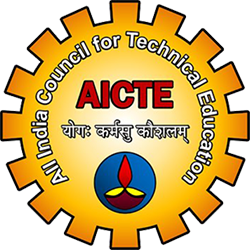What Is An MBA?
MBA is a postgraduate degree that concentrates on creating the competencies required to be a successful company leader. MBA programmes frequently involve a broad range of subjects, such as accounting, finance, marketing, management, and operations. Employers value MBA graduates highly and they can open up a wide range of profitable and satisfying employment opportunities.

MBA Course Key Highlights
| Particulars | Details |
| Full Form | Master of Business Administration |
| Course Level | Postgraduate |
| Average MBA Fee | INR 2 lakhs and INR 8 lakhs |
| Duration | 2 years |
| Specializations | Finance, Marketing, HR, Operations, IB, etc. |
| Eligibility | 50% marks. Qualifying a bachelor’s degree from a recognized university/institution |
| Curriculum | Core as well as elective subjects |
| Entrance Exams | CAT, MAT, or XAT and many more |
| Admission Process | Submission, Entrance Exam Scores, GD/PI |
| Teaching Methodology | Lectures, case studies, group projects, etc. |
| Career Opportunities | Management Consultant, Investment Banker, Financial Analyst, Marketing Manager, HR Manager |
| Average Package | INR 7.75 LPA (PayScale) |
| Type | Full-time, part-time, executive, online |
| Top Recruiters | Google, Amazon, McKinsey and many more top-notch brands |
MBA Course Average Fees
The average fees of an MBA program vary depending on the school and the program type. However, most MBA programs cost between INR 2 lakhs and INR 8 lakhs. Some top MBA programs in India can cost even more.
MBA Course Duration
MBA programs in India typically last for two years. However, there are some one-year MBA programs available.
MBA Course Mode of Study
Online, part-time, and full-time MBA programs are all available in India, along with other learning options. Students in full-time MBA programs often have to spend two years attending classes on campus. Students in part-time MBA programs attend classes in the evenings or on weekends. Moreover, with the help of online MBA programs, students can finish their coursework from any location in the world at their leisure.
MBA Specializations
MBA programs in India offer a variety of specializations, including:
- Finance
- Marketing
- Human Resources
- Operations Management
- Information Systems Management
- Entrepreneurship
- International Business
- Healthcare Management
- Rural Management
- Business Analytics
- Supply Chain Management
- Sustainability Management and many more.
MBA Course Eligibility Criteria
The eligibility criteria for MBA courses in India vary depending on the institution and the type of program. However, most MBA programs in India require the following:
- Bachelor's degree in any discipline from a recognized university
- Minimum marks of 50% in aggregate in the bachelor's degree
- Valid CAT/MAT/XAT/GMAT score
Some MBA programs may also have additional eligibility requirements, such as work experience or a specific undergraduate degree.
MBA Course Curriculum
The MBA course curriculum in India typically covers a wide range of topics, including:
- Accounting
- Finance
- Marketing
- Management
- Operations
MBA programs also provide a range of elective courses that students can select from to specialize in a particular field, in addition to these core courses.
MBA Course Entrance Exams
To be admitted to an MBA program, students must typically take and pass an entrance exam. The most common entrance exams for MBA programs in India are the Common Admission Test (CAT), the Management Aptitude Test (MAT), and the Graduate Management Admission Test (GMAT).
MBA Course Admission Process
The admission process for MBA programs in India typically involves the following steps:
- Take a relevant entrance exam (CAT, MAT, XAT, GMAT).
- Apply to desired institutions online with the necessary documents.
- Participate in Group Discussions, Personal Interviews, and possibly a Written Ability Test.
- After final selection, proceed to pay the fees for confirmation.
*Note- Some MBA programs may have additional steps in the admission process.
MBA Course Teaching Methodology
The teaching methodology for MBA courses in India typically combines a variety of methods, including:
- Lecture-based instruction
- Case study analysis
- Group projects
- Simulations
- Guest speakers
MBA Course Placement Assistance
Most MBA programs in India offer placement assistance to their students. This assistance can include resume writing workshops, mock interviews, and networking opportunities with potential employers. Some MBA programs also have dedicated placement cells that work with top consultancies to place students in jobs after graduation.
MBA Course Career Opportunities
MBA graduates can pursue a wide range of career opportunities in a variety of industries. Some of the most common career paths for MBA graduates include:
- Management Consultant
- Investment Banker
- Financial Analyst
- Marketing Manager
- Human Resource Manager
- Sales Manager
- Operations Manager
- Entrepreneur
MBA graduates are also in high demand in the tech, healthcare and the nonprofit sector.
MBA Graduate Average Salary
According to PayScale, the average salary for an MBA graduate in India is INR 7.75 LPA. The salary varies depending on the industry, the company and the individual's experience and skills.
Here is a brief overview of the different types of MBA courses available in India:
- Full-time MBA
A two-year full-time MBA program mandates that students attend classes completely. The most typical type of MBA program in India is full-time, and these programs give students the most networking and professional growth opportunities.
- Part-time MBA
A two-year part-time MBA program enables students to work full-time and attend classes part-time. Working individuals who wish to get an MBA degree without quitting their jobs might consider part-time MBA programs.
- Distance MBA
A two-year distance MBA program lets students study on their schedule and from whenever they choose. Students who reside in remote places or who are unable to attend classes regularly due to other obligations might choose distance MBA programs.
- Executive MBA
The one- to two-year executive MBA program is created for seasoned professionals who wish to enhance their career growth. Executive MBA programs require their students to have at least a few years of professional experience.
- Online MBA
The two-year online MBA program offers a modern way of studying, enabling individuals to pursue an MBA from top institutions like Harvard without relocating. This convenience offers flexibility and accessibility for working professionals and career advancement.
- Dual Specialization MBA
A two-year dual specialization MBA program allows students to specialize in two areas of business, at the same time. Dual specialization MBA programs are an excellent choice for individuals seeking to develop a diverse set of business abilities.
Why Choose an MBA for Personal Growth?
An MBA degree can be a great way to foster personal growth by:
- Developing new skills and knowledge
- Expanding your network
- Developing leadership skills
- Building confidence
- Achieving your career goals
Who Can Pursue an MBA?
Anyone with a bachelor's degree from a reputed university can apply for an MBA. Here are some of the types of people who can pursue an MBA:
- Recent college graduates
- Working professionals who want to advance their careers
- Entrepreneurs who want to learn more about business
- Career changers who want to switch to a business career
Skills Required for MBA Degree
Here are some of the skills required for an MBA degree:
- Quantitative skills
- Analytical skills
- Problem-solving skills
- Communication skills
- Teamwork skills
- Leadership skills
MBA Salary Trends
The job market for MBA graduates is currently very strong. Several factors are contributing to this strong demand for MBA graduates, including global economic growth, the increasing complexity of business, and the rising demand for skilled workers.
According to a recent survey by PayScale, the average salary for MBA graduates in India is INR 7.75 LPA. The highest-paying industries for MBA graduates include finance, consulting, and technology.
The salary range for MBA graduates in India varies depending on the industry, the academic performance, the job role, the work experience and the institution from which they graduated. Here is a breakdown of the average salary for MBA graduates in India by industry:
| Industry | Average Salary |
| Finance | INR 12 LPA |
| Consulting | INR 11 LPA |
| Education | INR 9 LPA |
| Healthcare | INR 10 LPA |
| Retail | INR 9 LPA |
| Manufacturing | INR 10 LPA |
| Technology | INR 11 LPA |
| Government | INR 9 LPA |
MBA Abroad
Getting your MBA abroad can be an excellent way to boost your career. The advantages of earning an MBA abroad are numerous. To name a few:
- Learning from world-class faculty.
- Gaining an international perspective.
- Developing a global network.
- Enhancing your cross-cultural skills.
- Increasing your career opportunities.
- Gaining exposure to diverse business environments.
Why Pursue Globally Recognised Sparsh Global MBA Degree from NKU, USA?
Globally recognised MBA degree from NKU, USA is AACSB 2 AWACS-Accredited globally that is designed to prepare students for careers in the global business world. The curriculum is contextually tailored as per global standards by distinguished and global champions.
The course is taught by experienced faculties from top business schools around the world. The program covers a wide range of business topics. Students study 1st year in India at the Sparsh Global Business School campus with an option of completing 2nd year in the USA. They also have the opportunity to participate in an international internship. Post program completion, a one year work visa in the USA is provided. This is a great option for students who are looking for a challenging and rewarding MBA program that will prepare them for careers in the global business world.
Difference Between Global MBA And MBA
Here are some of the key differences between a global MBA and a traditional MBA:
| Global MBA | Traditional MBA |
| Focuses on international business and management | Focuses on general business administration |
| Primarily geared towards international careers. | Prepares students for careers in wide range of industries, often with a focus on local or national markets. |
| Typically includes an international internship or study abroad component | Does not typically include an international internship or study abroad component |
Your particular objectives and desired professional path will determine which style of MBA program is best for you. A global MBA can be an excellent choice for you if you're interested in working in the world of global commerce. Opting for a traditional MBA program may be the preferred choice if you are looking for a more comprehensive education in the field of business administration.
MBA FAQ
1. What are the key factors to consider when choosing an MBA college?
The most important aspects are location, industry tie-ups, faculty, curriculum, accreditation, and faculty.
2. Is MBA A Good Career?
Yes, it provides leadership opportunities, increased income potential and a chance to learn new skills.
3. How to prepare for MBA entrance exams?
Time management, targeted study, and practice tests are all important components of MBA entrance exam preparation. Start early, use top-notch study tools, enroll in coaching classes as necessary, and take frequent practice exams.
4. How To Do an MBA In the USA?
To pursue an MBA in the USA, research on university of your choice, complete the prerequisites, gather your materials (transcripts, test results), submit an application with writings and recommendations, and if approved, get a student visa.
5. Which Specialization Is Best In an MBA?
Pick a speciality that is compatible with your hobbies and professional objectives.
Conclusion
MBA is an investment in your knowledge, skills and personal network critical to business success in the modern world.
An MBA is a very potent instrument for self-realization and professional development.
Your Path to Success Begins with Globally recognised MBA Degree from NKU, USA!
It is important to keep in mind that if you are considering an MBA, selecting the right program might matter even more than obtaining it. Globally recognised MBA from NKU, USA is a 2-year intensive MBA program where Students study 1st year in India at the Sparsh Global Business School campus and have an option of completing 2nd year in the USA. The curriculum is drafted by experienced faculties of leading business schools across the world which provides an exceptional chance for you to grow faster to become part of this dynamic global business domain.
Some of the other reasons to choose SGBS are:
- After Graduation, a one-year Work Visa for the United States
- Career Guidance and Building an International Career
- Unprecedented Exposure Abroad
- Expanded Networking Possibilities
- Contextually-tailored Curriculum by Eminent Leaders
- Immersive and Engaging Pedagogy
- Social Immersion
- Professional Certifications
- Sim Lab
- Mentoring by Seasoned Industry Professionals
To learn more about the Global MBA course at SGBS, visit the website!
Do not think twice, go for it! Seize this opportunity to advance your career and step into a realm of limitless promises and significant victories.
Now, it's your turn. Act now, enroll for an MBA and write your own success story. Your future begins today!



